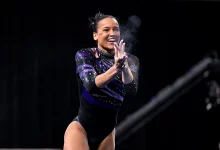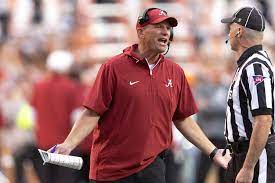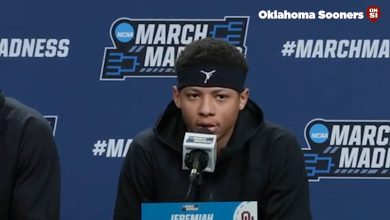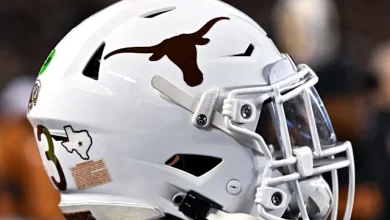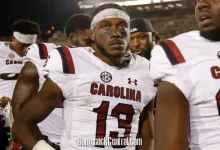Gatorade Player of the Year Cameron Boozer believes Duke basketball is underrated and overlooked heading into the 2025-26 season, highlighting the team’s potential despite limited recent recognition.
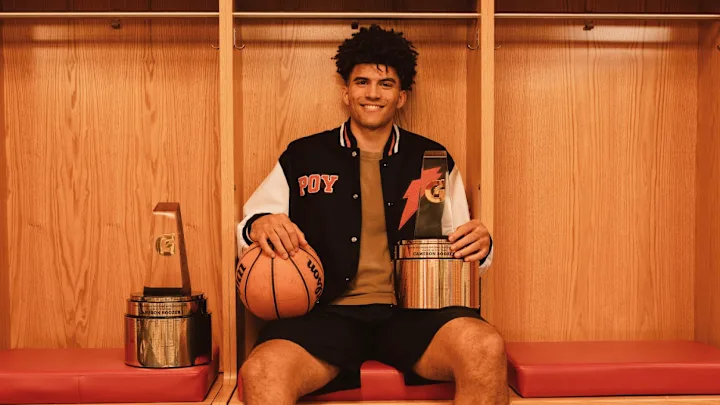
As the college basketball landscape gears up for the 2025-26 season, many discussions center around powerhouse programs, emerging stars, and preseason rankings. Yet, amidst these narratives, some voices suggest that certain programs may be undervalued or underestimated. Among these voices is Cameron Boozer, the Gatorade Player of the Year and highly touted recruit, who has publicly expressed the belief that Duke University’s basketball team is underrated and overlooked heading into the upcoming season. Boozer’s perspective is notable not just because of his individual prominence but because it reflects a broader narrative about Duke’s potential, resilience, and the underappreciated depth of their roster. This analysis delves into the reasons behind Boozer’s sentiments, the current state of Duke basketball, their recent recognition—or lack thereof—and the factors that could propel them to a successful 2025-26 campaign.
The Context: Duke Basketball’s Historical Prestige and Recent Trends
A Legacy of Excellence
Duke basketball has long been one of the most storied programs in college sports, establishing a reputation built on multiple NCAA championships, legendary coaches, and a consistent pipeline of NBA talent. Under the leadership of Mike Krzyzewski, Duke became synonymous with excellence, discipline, and a winning culture that set the standard in college basketball. Their success was characterized by disciplined defense, innovative offense, and a knack for developing top-tier talent.
Recent Challenges and Perceptions
However, in the last few seasons, Duke has faced challenges that have somewhat diminished their national perception. Post-Krzyzewski, the program has been in a transitional phase, adjusting to new coaching philosophies and roster changes. While they have maintained competitiveness, they haven’t achieved the same level of dominance or consistent top-tier recognition as in previous decades. As a result, some analysts and fans may overlook Duke in preseason rankings or projections, especially amidst rising programs and a crowded landscape of elite teams.
The Shift in College Basketball Dynamics
The college basketball landscape continues to evolve—transfer portals, NIL (Name, Image, Likeness) opportunities, and recruiting shifts have democratized talent acquisition, allowing programs outside traditional powerhouses to rise quickly. This environment can sometimes cause established programs like Duke to fly under the radar, especially if recent seasons haven’t yielded championship results.
Cameron Boozer’s Perspective: Why He Believes Duke Is Underrated
The Rising Star’s Insight
Cameron Boozer, a highly regarded recruit and the Gatorade Player of the Year, has been closely observing college basketball’s evolving landscape. His comments about Duke’s underrated status stem from a nuanced understanding of the program’s recent trajectory, roster development, and the national perception of their competitiveness.
Potential Overlooked Talent and Depth
Boozer emphasizes that Duke possesses a talented roster that might not be receiving the recognition it deserves. While media narratives and preseason rankings often focus on returning stars, recent recruiting classes, or established powerhouses, Boozer points out that Duke’s combination of experienced players, promising newcomers, and a robust coaching staff could make them a formidable contender.
The Importance of Culture and Coaching
Duke’s coaching staff, known for their player development and strategic acumen, remains a significant asset. Boozer recognizes that under the guidance of a new or transitional coaching regime, the Blue Devils can leverage their tradition of excellence and adapt quickly, often catching opponents and analysts off-guard.
Motivation to Prove Doubters Wrong
Being underrated can serve as motivation for a team. Boozer suggests that Duke’s players and coaching staff are aware of the narrative that they lack recognition and are eager to prove critics wrong. This internal motivation, combined with talent and preparation, can drive Duke to exceed expectations.
The Roster and Talent Evaluation
Key Players and Emerging Talents
While Boozer’s comments highlight the team’s potential, it’s essential to analyze their roster composition. Duke’s roster for 2025-26 likely includes a blend of seasoned veterans, talented freshmen, and promising transfers. The development of these players and their ability to mesh quickly will be crucial.
Returning Leaders: Experienced guards and forwards who have played significant minutes in previous seasons will provide stability and leadership.
Freshman Impact: High-profile recruits like Boozer himself can inject energy, talent, and fresh perspectives into the team.
Transfers and Additions: The transfer portal remains a vital tool for programs like Duke to fill gaps and add immediate impact players.
Strengths and Potential Weaknesses
Strengths: Depth in guard play, versatile forwards, and a coaching staff skilled in maximizing player potential.
Weaknesses: Inexperience in some areas, lack of recent championship success, or the challenge of integrating new players under the pressure of high expectations.
Comparative Analysis with Peers
Compared to other top programs, Duke’s roster may lack the marquee names that dominate preseason narratives. However, Boozer’s assessment suggests that the team’s collective talent and chemistry could surpass what rankings indicate.
The Broader Narrative: Underrated But Not Underprepared
Historical Precedents
Historically, programs that are overlooked or underestimated often leverage this outsider status to fuel their seasons. Examples include Villanova’s 2016 championship run or Virginia’s 2019 title, where teams defied expectations through disciplined play, strategic execution, and resilience.
Duke’s Potential to Surprise
Duke’s identity—built on strong defense, disciplined offense, and a culture of excellence—positions them well to capitalize on the element of surprise. With a motivated roster and a coaching staff adept at strategic adjustments, Duke can emerge as a dark horse or a top contender.
The Role of Motivation and Culture
Boozer’s comments imply that internal motivation could be a key factor. Recognizing that they are undervalued can unite the team, foster a competitive edge, and inspire players to elevate their game when it matters most.
The Significance of Media and Public Perception
Preseason Rankings and Their Limitations
Preseason polls and expert predictions often focus on returning stars, recent success, and recruiting rankings. Programs like Duke, which may lack immediate star power or recent championships, can fall behind in these rankings. Boozer’s statement challenges this paradigm, emphasizing that true excellence isn’t always reflected in preseason lists.
Media Narratives and Underdog Opportunities
Underrated teams often receive less media attention, which can be an advantage. Less pressure, lower expectations, and the element of surprise can allow a team like Duke to play more freely and strategically.
The Challenge of Overcoming Overlooked Status
Building Confidence and Cohesion
Duke’s coaching staff must focus on building team chemistry and confidence, especially if they are perceived as underdogs. Overcoming external perceived underestimation requires internal belief and a relentless work ethic.
Leveraging the Program’s Legacy
Duke’s storied history and tradition can serve as a source of motivation and identity. Reinforcing the team’s commitment to excellence and resilience can help them defy the odds.
Scheduling and Non-Conference Play
A challenging non-conference schedule can prepare Duke for postseason success and help solidify their underrated status as a team capable of competing with top-ranked opponents.
The Broader Implications for College Basketball
Shifting Power Dynamics
If Duke proves to be a dark horse or top contender, it could signal a broader shift in college basketball where traditional powerhouses face more competition from emerging programs.
Recruitment and Talent Development
A successful season fueled by underdog status can enhance Duke’s recruiting appeal, attracting top prospects who value a program with a rich legacy but a hunger for recognition.
Impact on the NCAA Tournament
An underrated Duke team could be a dangerous opponent in March, leveraging underdog motivation to make a deep tournament run and challenge conventional favorites.
A Promising, Underrated Blue Devil Season Ahead
Cameron Boozer’s assertion that Duke basketball is underrated and overlooked heading into the 2025-26 season is rooted in a nuanced understanding of the program’s talent, culture, and potential. While recent seasons may have tempered their national perception, the combination of experienced leadership, promising recruits, strategic coaching, and internal motivation positions Duke to defy expectations and make a significant impact. Boozer’s perspective underscores the idea that in college basketball, perception isn’t always reality. Programs can rise from the shadows, surprise skeptics, and showcase their true strength when driven by belief, resilience, and a relentless pursuit of excellence. As the season unfolds, all eyes will be on Duke to see if they can translate this underrated status into undeniable success.

